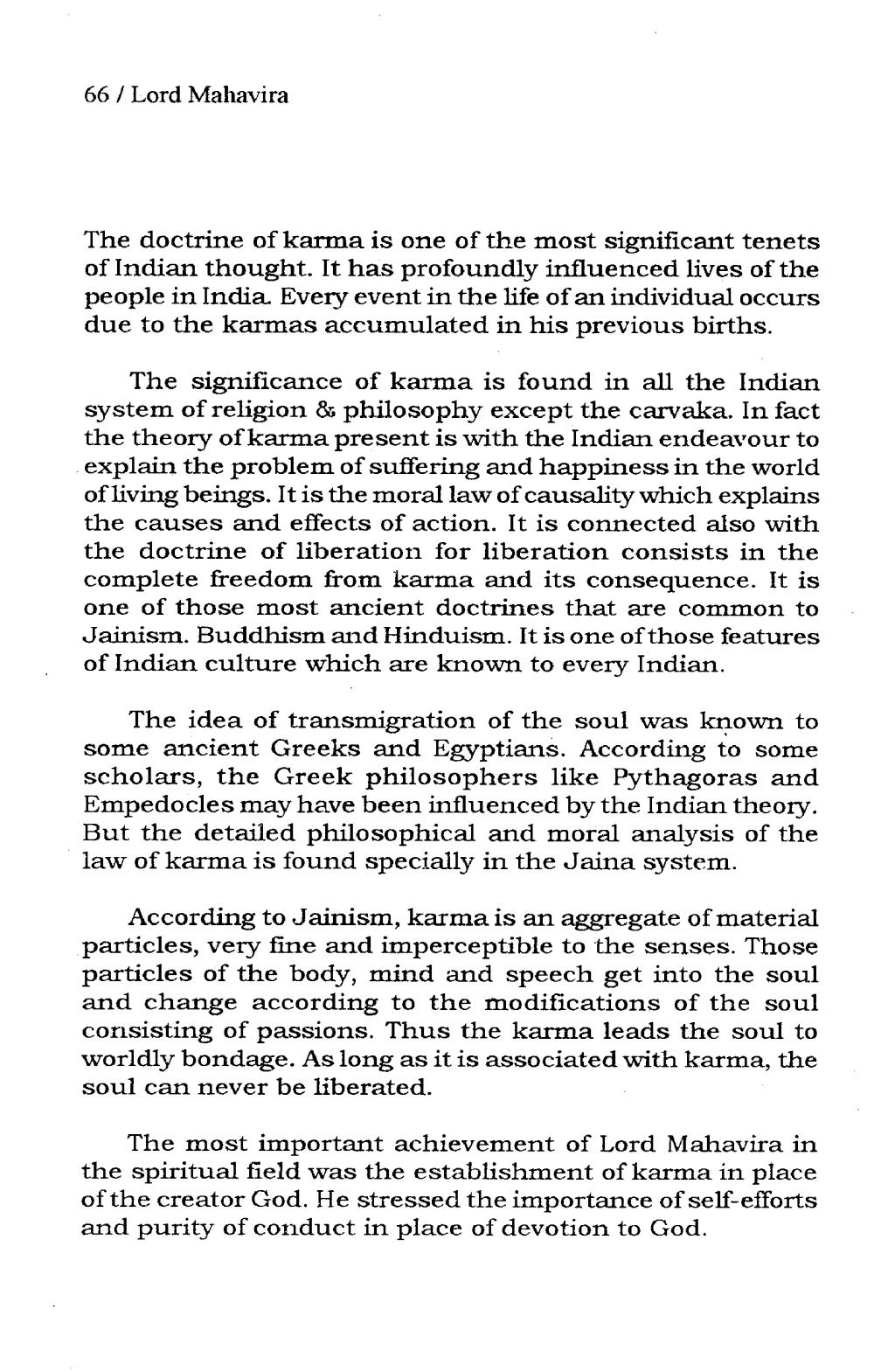________________
66/ Lord Mahavira
The doctrine of karma is one of the most significant tenets of Indian thought. It has profoundly influenced lives of the people in India. Every event in the life of an individual occurs due to the karmas accumulated in his previous births.
The significance of karma is found in all the Indian system of religion & philosophy except the carvaka. In fact the theory of karma present is with the Indian endeavour to explain the problem of suffering and happiness in the world of living beings. It is the moral law of causality which explains the causes and effects of action. It is connected also with the doctrine of liberation for liberation consists in the complete freedom from karma and its consequence. It is one of those most ancient doctrines that are common to Jainism. Buddhism and Hinduism. It is one of those features of Indian culture which are known to every Indian.
The idea of transmigration of the soul was known to some ancient Greeks and Egyptians. According to some scholars, the Greek philosophers like Pythagoras and Empedocles may have been influenced by the Indian theory. But the detailed philosophical and moral analysis of the law of karma is found specially in the Jaina system.
According to Jainism, karma is an aggregate of material particles, very fine and imperceptible to the senses. Those particles of the body, mind and speech get into the soul and change according to the modifications of the soul consisting of passions. Thus the karma leads the soul to worldly bondage. As long as it is associated with karma, the soul can never be liberated.
The most important achievement of Lord Mahavira in the spiritual field was the establishment of karma in place of the creator God. He stressed the importance of self-efforts and purity of conduct in place of devotion to God.




